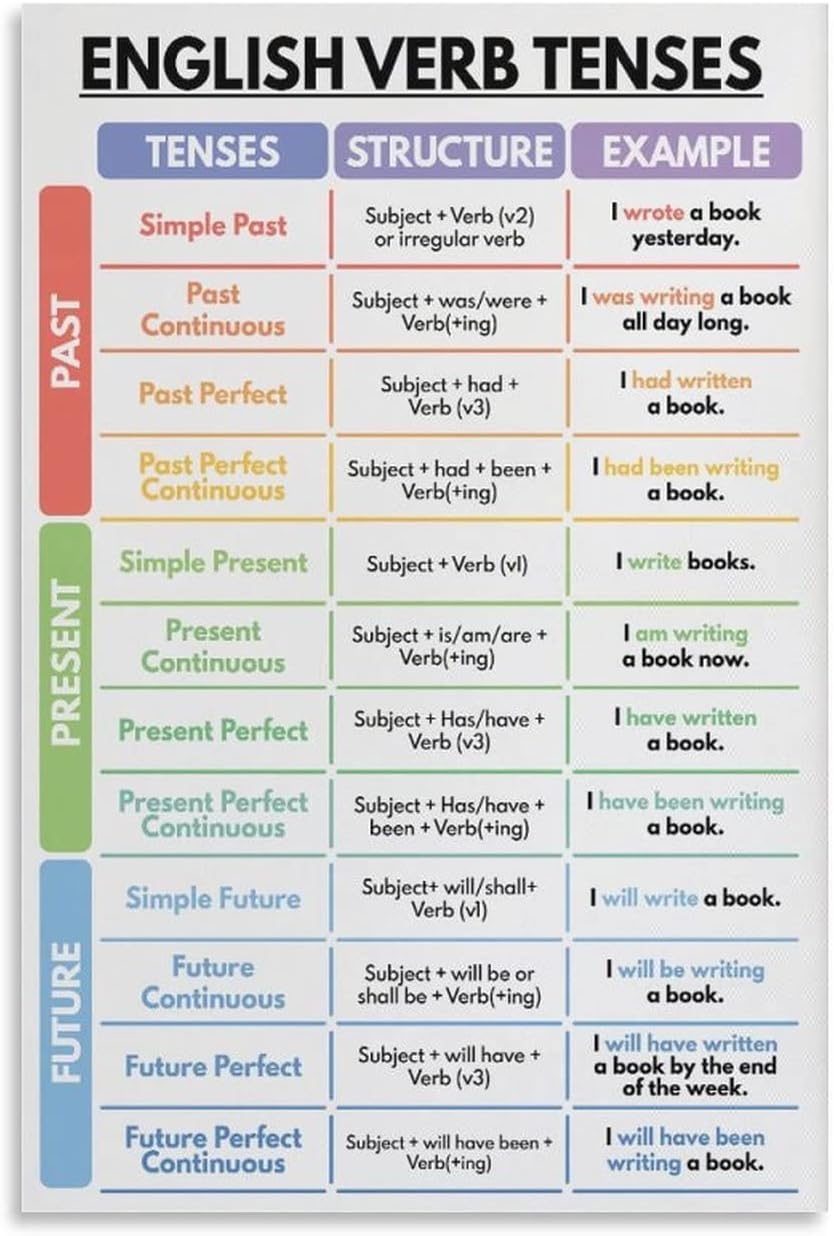English verbs tenses can be a challenging topic for many learners. However, understanding how they work is crucial for communicating effectively in English. Verbs are words that express action, occurrence, or state of being. They are essential in constructing sentences and conveying meaning.
Verbs in English are conjugated to show different tenses, which indicate when an action takes place – in the past, present, or future. Each tense has its own rules and structures that learners need to grasp in order to use verbs correctly.
English Verbs Tenses
There are 12 tenses in English grammar, divided into three main categories: past, present, and future. Each category has four tenses – simple, continuous, perfect, and perfect continuous. Understanding the differences between these tenses is essential for accurate communication.
The simple tenses are used to describe actions that are completed or habitual. For example, “I eat breakfast every morning” uses the simple present tense to indicate a habitual action. The continuous tenses are used to describe actions that are ongoing at a specific time. For example, “She is watching TV right now” uses the present continuous tense to describe an action in progress.
The perfect tenses are used to indicate actions that are completed before a specific time or are relevant to the present. For example, “I have finished my homework” uses the present perfect tense to indicate a completed action with present relevance. The perfect continuous tenses are used to describe actions that started in the past and continue up to a specific time. For example, “She has been studying for two hours” uses the present perfect continuous tense to indicate an action that started in the past and continues up to the present.
Mastering English verbs tenses takes practice and dedication. It is important to study the rules and structures of each tense and practice using them in context. By understanding how verbs tenses work, learners can improve their communication skills and express themselves more accurately in English.
In conclusion, English verbs tenses play a crucial role in constructing sentences and conveying meaning. By mastering the 12 tenses in English grammar, learners can enhance their language skills and communicate effectively in various situations. Practice and persistence are key in mastering English verbs tenses, so don’t be afraid to make mistakes and keep learning!
